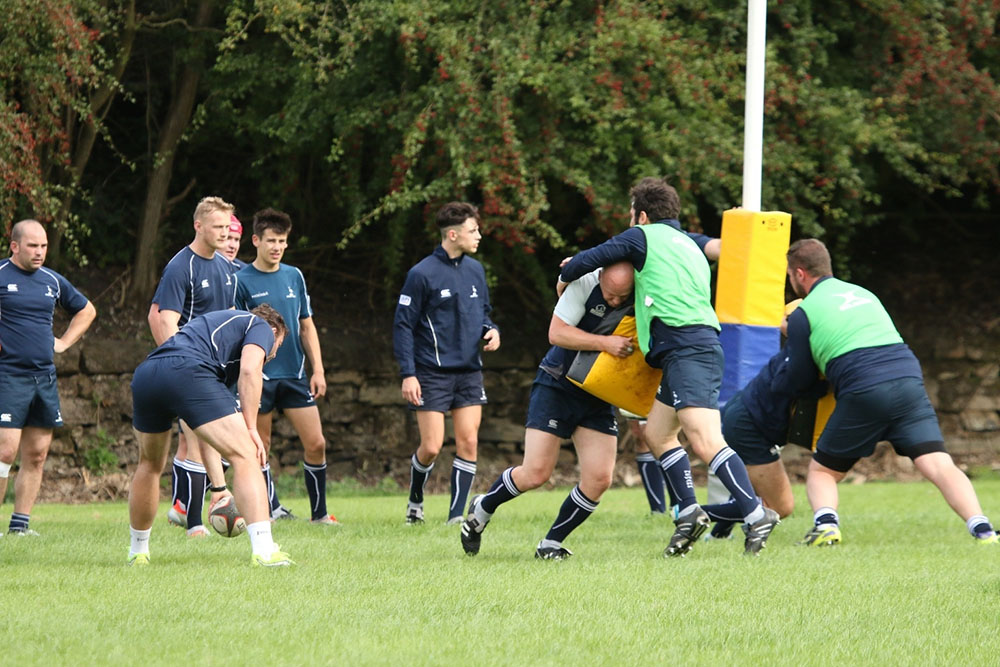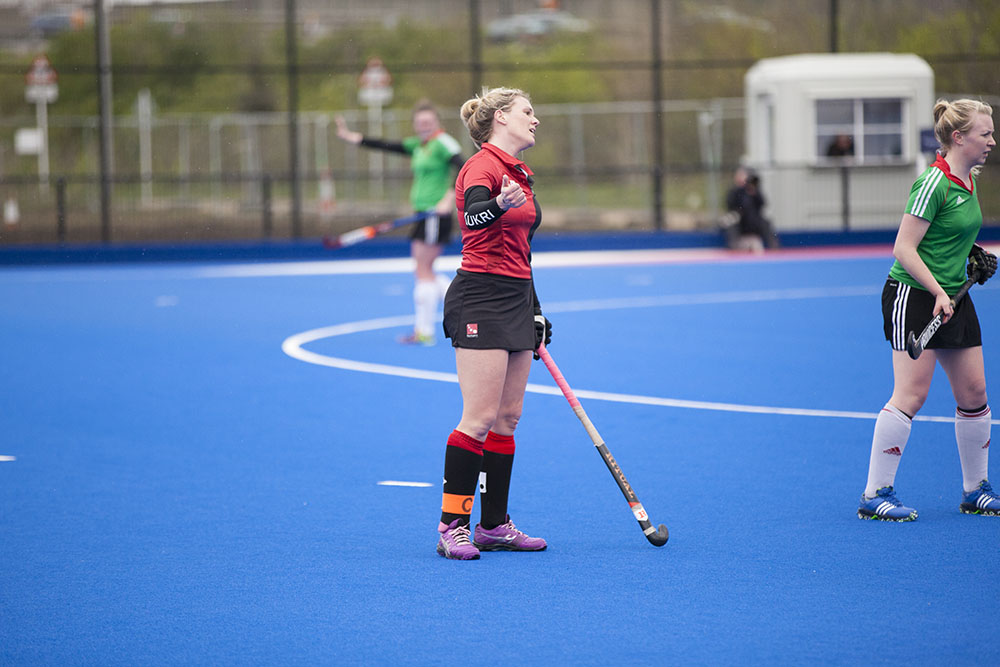As community sports men and women, taking your undoubted skill and class on the training pitch and emulating it on match day can be a significant barrier to performance. Even the world's coolest sporting heads can be reduced to little more than a fumbling mess once the pressures of match day set in.
To overcome these difficulties and nail your skills out on the pitch every weekend, you need one thing – self-confidence. Here, we'll get to the bottom of what self-confidence actually is, what's holding you back during a game, and how you can boost self-confidence to overcome these issues.
Defining self-confidence
A quick Google search brings up the following definition:
Self-confidence
a feeling of trust in one's abilities, qualities, and judgement.
That feeling of uncertainty, those voices in the back of your head that lead you to make mistakes you wouldn't ordinarily make; they are born out of all lack of real trust in your capability to execute a skill during a match.
It's important to make a distinction between self-confidence and self-esteem. Self-esteem is more concerned with how you feel about yourself, an overarching sense of how you view yourself (be it positive or negative).
Whilst self-esteem will remain constant throughout many scenarios, your self-confidence could alter depending on the situation. One example is sports performance. Your confidence to execute one skill may be significantly higher than another, but how can you ensure that you have more self-confidence in more scenarios when you're out on the pitch?
Here's a few proven methods to boosting self-confidence.
Why do you lack confidence?
Before you get started on moving forward, you need to get a grip on where you are right now. Try and have a full and frank evaluation of where you trip up time and again. Where do those feelings of anxiety kick in? Identify patterns and similarities, using your coach to help pinpoint their location.
Once you've agreed on the root of your issues, you can begin to plan out how you overcome them. Which leads directly to our next point.
Put in the hard yards
As highlighted in the definition of self-confidence, a lack of total trust that you can nail a particular skill is why you'll end up screwing it up when it really matters. The solution to that? Build confidence in your ability to execute skills by practicing them tirelessly on the practice pitch.

Famous goal-kickers in rugby are a great example of how repetition of a skill can reap the rewards when it comes to game day. One significant factor to the likes of Dan Carter and Johnny Wilkinson's ability to kick conversions is relentless practice.
Sometimes this might mean taking a selfish approach by prioritising individual training. Team training is exactly that – team orientated. Working on team roles and overall shape, it leaves little room for you to improve on your weaker areas.
Try to put some time aside where you can concentrate solely on developing individual skills that are tailored to you. As we've touched on in a previous blog written by Chelsea FC Technical skills coach Saul Isaksson-Hurst, individual training is a quicker way of improving your skills; in the process you can quickly boost your self-confidence.
Look back on good performances
Through your ongoing project of improving self-confidence, you'll discover small personal touches that help you – one of which might be video.
Ask a supporter to video parts of your performance out on the pitch or even during training sessions. Store the clips of you scoring a wonder goal, uprooting someones middle stump or catching a high ball and keep hold of them as video evidence of your excelling.
Video can be a powerful tool to be used as you recover from sporting disappointment. Seeing is believing, and a reassuring video highlights reel of your best bits can provide a timely confirmation when you begin to doubt your skills.
Focus on what you can control
When competing in team sports, a long and complicated list of factors contribute to victory to one side over the other. To name just a few: the weather, referee, the individual performances of your team mates and the other team.
The point is, no matter how hard you train and how well you perform out on the pitch, factors outside of your control are going to lead to setbacks. Players can often become bogged down in things they had no particular influence on, and it can lead to a knock-on effect in their personal performance.
Ignore the 'uncontrollables' and focus on what you as an individual can do to influence the remainder of the game. With it, you'll boost your concentration levels and not take a confidence hit from external factors.
Think positive
Self-confidence is a matter of mental state. Negative thoughts creeping into the back of your mind are inevitable; often it can be how you turn these into positive thoughts that has a telling effect.

Take a negative approach to your abilities and you'll soon begin to convince yourself what you're saying is true. Don't beat yourself up about areas of your game that aren't perfect and spin it into a positive approach. An area of improvement is an opportunity to grow as a player – an attitude you need to instil in yourself at all times.
Say positive thoughts enough times and you'll soon start to believe them too.
Condition yourself better
The feeling of physical well-being can have a significant influence on boosting your self-confidence out on the pitch. Work at conditioning yourself correctly, improving strength, speed and stamina. Not only will it breed self-confidence as your body-confidence grows, but it'll help you to be better out on the pitch.
A body in peak condition is faster to the ball, stronger in their stroke play and able to maintain stamina throughout the match – helping you to perform your skills better and more often. Plus, you'll recover quicker after games, helping you to get back out on the pitch to put more time into practicing.
Undertake a conditioning programme that gets you in peak condition, helping you to avoid injury, maintain performance for longer and reduce post-match recoveries. Our resident fitness and conditioning expert, Jay Salter, is on hand with tips on conditioning for footballers here and rugby players here.
Visualise success
A common trait used by sports performers is visualisation. Switching back to those rugby goal-kickers, take a closer look at England back Owen Farrell when he steps up to take a kick. Moving his head back and forth from tee to sticks, he visuals the path of the ball as it serenely flies over the posts.
Visualisation is a technique that can be transferred to pretty much any sport. They all require you to take on specific skills, and they can all be visualised before you undertake them. Wayne Rooney, Andy Murray and Jonny Wilkinson are other well-know advocates. Rooney for example said that his Friday night ritual includes visualising scoring wonder goals against the exact opposition he'll come up against the next day.
Whether it be before match day or during breaks in play during a match, visualisation should become a key factor in boosting your self-confidence. Cricketers can take a minute before going out to bat to visualise smashing the opposition bowler for six or hockey goalkeepers can think about pulling off an amazing save.
Apply visualisation to your sport, instilling these positive images into your brain beforehand and giving you more confidence when emulating them for real when the pressures of match day come.
Set realistic goals
Goal setting should be a significant part of any sports performers plan to becoming better, and this can be linked directly to a boost in confidence.
Flip back to those initial stages of planning your route to a more confident self. Throughout, you should be placing realistic yet challenging goals that confirm your on the right track; or refocus your mind.
Setting yourself a target, working hard to achieve it and then seeing yourself nail it is an incredibly rewarding experience. Link them directly to skills you want to improve. As a batsman in cricket, do you tend to get out a specific way a lot? Find the technical issue at fault, correct it and use a goal to track your progress.

Goals take hard work and dedication to achieve, things that directly link to boosting self-confidence (as in “Put in the hard yards”). Once you've got there, you'll gain another handy confidence boost from seeing all your hard work pay off.
Learn from disappointment
All sports men and women suffer from setbacks and bouts of self-doubt in their own ability. What separates the good from the great is how you bounce back from these disappointments to become a more confident player.
A number of the points raised above contribute to how you can learn from the negative outcomes of sport and use them as sources of motivation. Focus on what you can control, take the positive out of each situation and use setbacks as a means to refocus on where you can improve, setting goals and then training hard to ensure you come back stronger.
Ride this circle of constant self-evaluation and improvement, and you'll quickly see results out on the pitch with greater trust when executing skills.
